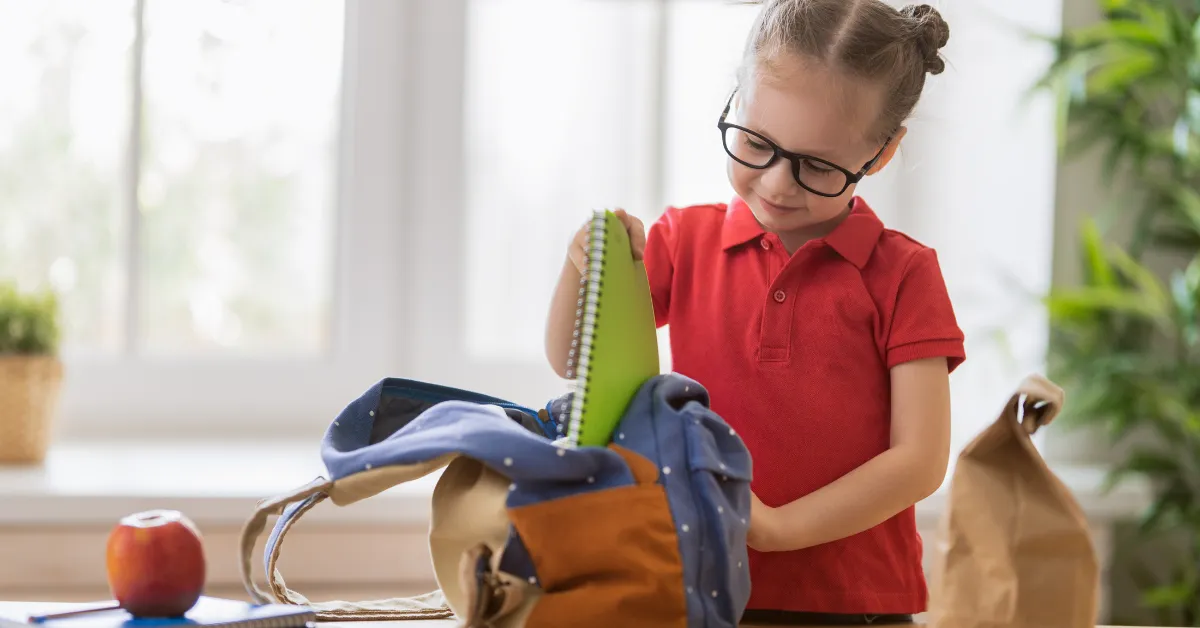It's that time of year again! The school year is winding down, report cards are in hand, and the excitement (and maybe a little anxiety) of a new grade level is just around the corner. As parents, we naturally want to ensure our kids are ready to tackle the challenges and welcome the opportunities that lie ahead. But "child preparation" goes far beyond just hitting the books. It's about nurturing their whole being – academic, emotional, and social – so they can succeed in the next chapter of their learning journey.
Let's be honest, the transition to a new grade can be a big deal for kids. They might be worried about new teachers, tougher subjects, or leaving their friends behind. As parents, our role is to be their biggest cheerleaders, guiding them through this transition with love, understanding, and a healthy dose of optimism.
Understanding School Readiness
School readiness encompasses a broad range of skills that go beyond academics. It refers to a child's preparedness to make an easy and successful transition into school, whether it's preschool or a higher grade. These skills include:
- Self-care: Skills such as independent toileting and opening lunch boxes.
- Attention and concentration: The ability to maintain focus on tasks.
- Physical skills: Endurance to sit upright for an entire school day.
- Emotional regulation: Managing emotions appropriately.
- Language skills: Comprehension and expression.
- Social skills: Playing and interacting with peers.
A strong foundation in these areas allows teachers to further develop a child’s skills in social interaction, play, language, emotional development, physical abilities, literacy, and fine motor skills. Children who begin school with these foundational skills in place tend to advance more quickly than those who are still developing them.
Key Areas of Preparation
Starting Fresh: Leaving the Past Behind
Every child's school journey has its ups and downs. Maybe your child struggled with math last year, or perhaps there were friendship challenges. The start of a new grade is the perfect opportunity for a fresh beginning. Have an open conversation with your child about any concerns from the previous year but frame it positively. You might say, "Last year had some tricky moments, but look how much you learned from them! What would you like to do differently this year?"
Help your child understand that mistakes and challenges are stepping stones to growth, not roadblocks. This mindset shift can be incredibly powerful as they enter their new grade.
Building the Right Mindset
A child's mindset can make or break their school experience. Here's how to nurture a positive attitude:
- First, encourage a growth mindset. Help your child understand that abilities aren't fixed – they can improve with effort and practice. Instead of saying, "I'm bad at math," encourage them to say, "I'm still learning math."
- Second, build excitement about new opportunities. Talk about the interesting subjects they'll study, the chance to meet and make new friends, and the exciting activities they might try. This helps shift focus from anxiety to anticipation.
- Third, validate their feelings. It's normal to feel nervous about a new grade. Let them know these feelings are common and that it's okay to talk about them.
Social and Emotional Preparation
Academic success is just one piece of this puzzle. Here's how to prepare your child socially and emotionally:
- Practice social skills at home. Role-play common social situations like meeting new classmates or working in groups. This can help boost their confidence in social interactions.
- Develop independence appropriate for their age level. This might mean packing their own lunch, organizing their backpack, or managing their homework schedule. These skills build confidence and responsibility.
- Work on emotional regulation. Teach them simple ways like deep breathing or counting to ten when feeling overwhelmed. These tools will serve them well in challenging moments.
Creating Routines and Structure
A smooth transition to a new grade often depends on having good routines in place:
- Start adjusting sleep schedules a few weeks before their school starts. A well-rested child is better equipped to handle new challenges.
- Establish morning and afternoon routines. Practice them before school starts to work out any kinks. This might include laying out clothes the night before, having designated homework time, or creating a checklist for morning tasks.
Supporting Academic Readiness
While academics aren't everything, they are important. Here's how to approach them:
- Focus on learning skills rather than specific content. Help your child develop good study habits, time management, and organization skills. These are more valuable than memorizing facts.
- Make learning fun and relevant to their interests. If they love sports, use baseball statistics to practice math. If they enjoy cooking, let them read recipes and measure ingredients.
Building a Support System
Help your child identify their support system:
- At home: Make sure they know they can come to you with any concerns
- At school: Help them know which teachers or staff members they can turn to
- With friends: Encourage maintaining old friendships while being open to new ones
Conclusion
Remember, every new grade is an opportunity for growth and discovery. Share stories of your own school experiences, including how you overcame challenges. This helps normalize the ups and downs of school life.
Celebrate the small wins along the way. Did they remember their homework routine all week? That's worth acknowledging! Did they try sitting with someone new at lunch? Wonderful!
As parents, our confidence in our children's abilities can help shape their own self-belief. Let them know you believe in them and are there to support them every step of the way.
By preparing our children holistically – mentally, emotionally, and academically – we give them the tools they need to thrive in their new grade and beyond. Remember, success looks different for every child, and that's perfectly okay.







